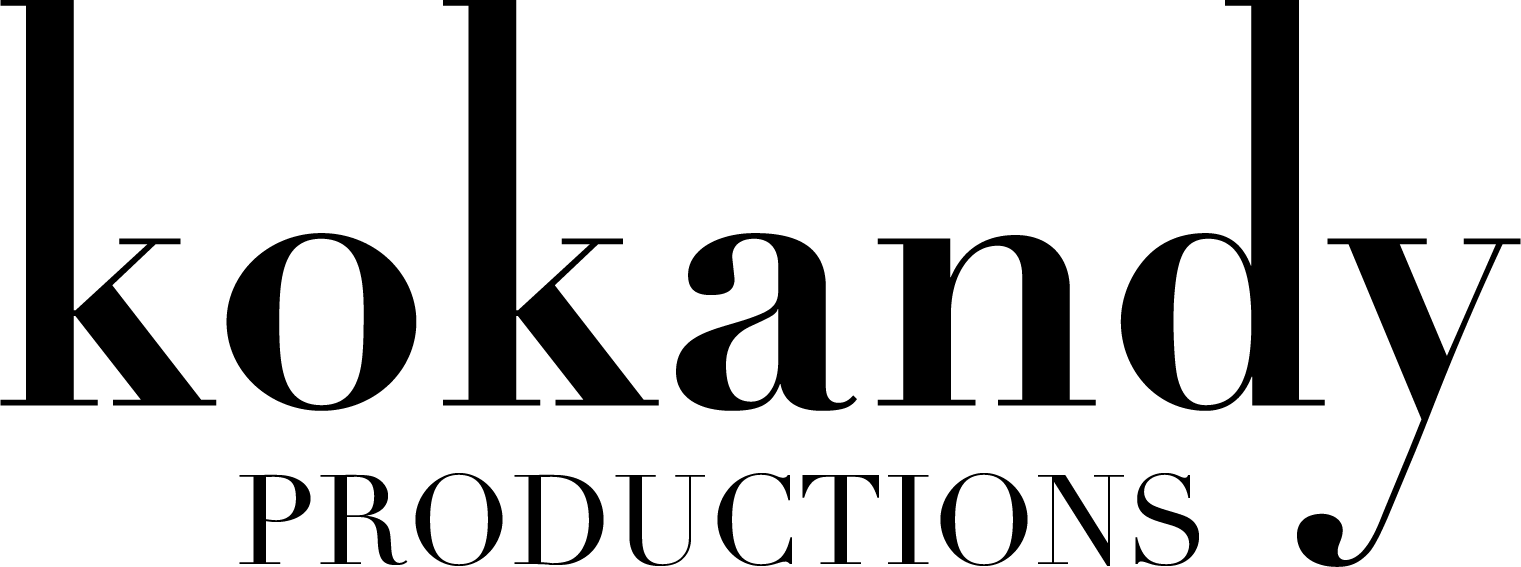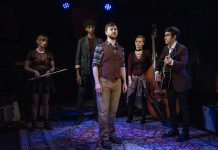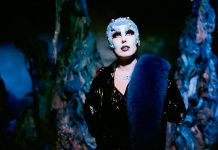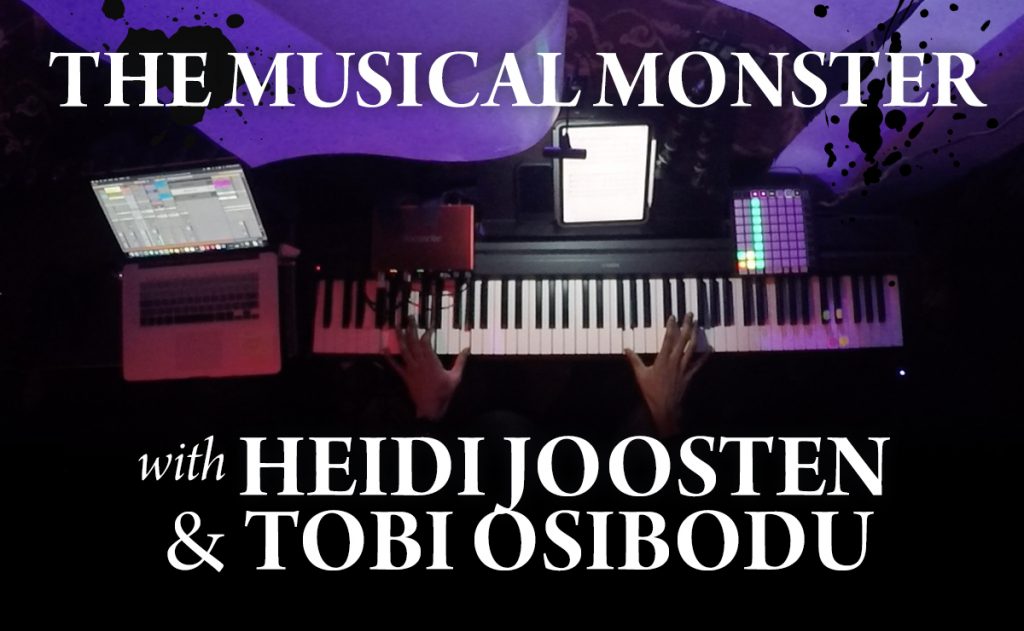
AMERICAN PSYCHO doesn’t sound like a typical musical. With an EDM-infused score mixed with chorale arrangements of 80s classics, it takes us onto the dancfloor, into the night and inside the mangled mind of Patrick Bateman. It’s a show that throbs and vibrates, immersing the audience in a sensual sound. Oh, and it uses this thing called Ableton…
Music Director Heidi Joosten & Associate Music Director and Ableton Designer Tobi Osibodu take us into the mad musical machine of American Psycho.
Tell us a bit about yourselves! How did you each get started?
H: I grew up in the northwoods of Wisconsin in a musical family. Both my bachelors and masters degrees are in composition, and I’ve been working professionally as a musician in Chicago for almost a decade, as a composer, lyricist, orchestrator, music director, conductor, sheet music guru, pianist, vocalist, and harpist. I’ve worked around the country as a composer/music director/conductor/music assistant, but working on new theatrical shows/premieres is my favorite thing to do. I also have the cutest dog in the world.
T: I’m from the far west suburbs of Chicago. I was put into piano lessons as a kid and immediately quit after a few months, but still kept playing every day. Once I joined band and choir and learned what a conductor was I became fascinated with the job and would spend hours practicing conducting to movie soundtracks alone in my living room. Then, in high school when I got my first opportunity to music direct in a theatrical setting, something clicked and that became my dream. Now that I live in the city proper, I’m working to build up my career in music for the theatre!
What is your preferred title?
H: Music Director is just fine for me.
T: Assistant Music Director and Ableton Programmer, please!
In your words, what does a music director do?
H: The music director’s job in any musical is to shape the music of the show according to the materials that have been given while also making choices and adjustments to better suit the production. Sometimes it’s rewriting/reworking vocal harmonies, frequently it’s changing keys to better suit actors’ voices, but I believe a music director’s primary responsibilities are making the cast vocals sound incredible and supporting them with an equally incredible band/accompaniment.
T: I think an MD’s primary role is facilitating the story through music the same way the director shapes the story through blocking and the overall vision of the show and the choreographer shapes the story through movement.
What then gets added for a show like American Psycho? Is it different than what might be expected with a more traditional musical?
H: As is with any Duncan Sheik musical, the splashiness and typical song & dance of musical theatre is replaced with very dense, very artistic/poetic musical and lyrical choices, especially in this horror/thriller of a musical. One comment that several reviewers of this show have made is that the music isn’t memorable/hummable when they leave the theater, and I like to challenge that line of thinking by asking if the purpose of all music in musicals should be memorable or if it should serve the entire experience? Very often, the ensemble in this show functions as an extra synth/pad layer of sound but with words rather than the specific characters in the show singing in a group as their respective characters. Bringing an audience into that specific type of world of “this is different, but it shouldn’t be unfamiliar” is my favorite part of working on newer shows.
T: In this show, we’re dealing with hyper individuality and late-stage capitalism and their effects on the psyche, right? Because of that, a lot of the ensemble vocals aren’t necessarily in support of Patrick’s thoughts, but rather an extension of his. Oftentimes they’re acting as if Patrick’s thoughts are another instrument in the orchestration, foreshadowing what’s to come.
What is the mark of good music direction? What should the audience be feeling or hearing?
H: Good music direction should serve the entire production as well as a well-fitted costume or beautiful light shift, and for me it’s all determined by how well the cast is supported vocally. I believe we’re witnessing a shift in the culture of music directors being good pianists who can lead a band and teach actors notes without shaping the vocals and supporting actors like the vocal athletes they are. If the music direction is good, the cast and band equally create a musical landscape that feels as flawless as tight choreography. Words are sung in a manner that feel natural and reflect the storytelling of the scenework, and all choices feel intentional and set up for success. If the music direction is good, audiences should find themselves lost in the moment of knowing great music is happening in front of them, but it’s only a part of the entire picture.
T: All of that^^^ No notes. To add: much like any technical element in a show, the music direction should feel so integrated into the show, that you almost don’t know it’s there.
Ok, so Ableton. Please explain. Bc it’s not just “keys and a computer” over there.
H: I’m SO glad we get to talk about this! When you license this show from Concord Theatricals, band parts are not available. There’s no drums book, no guitar book, no bass book – it is an entirely electronically designed production via a live performance DAW [digital audio workstation] called Ableton. And when Concord sends the Ableton file, it isn’t even remotely performance ready as it’s the entire “kitchen sink” of American Psycho, including archival material that could or could not be relevant to our production. From a music director perspective, deciding the keys and tempo for each song as well as how the piano/synth score they send us fits into the texture of the electronic design is incredibly similar to the typical storefront MD experience of figuring out how to turn a 13-piece orchestration into a functional 4-piece orchestration because that’s all the room we have. There are also vocal sweeteners that we had the option of using or not using (we cut them all because our cast sings like a dream without them), and that all falls under the purview of “music director”. Having Tobi right by my side to make joint decisions on how to make this sound as good as possible and also having their incredible skills in adjusting the massive Ableton file to work best for our production was such a major asset to our show. Tobi is a God.
T: Heidi you’re too kind, however I’m no god, I promise. The thing is, the keyboard rig we’re running isn’t too different from your typical musical theatre keyboard rig. The primary difference is we’re also triggering playback cues rather than just changing our keyboard sounds. The way we’re running this rig is kind of like a Frankenstein’s Monster of Mainstage and QLab. The great thing about Ableton, is that it has all the plugins that you’d use in music production (because its a music production tool) so you can get some really wacky stuff going on. I will admit, the file we were sent was a little messy so I had to do some cleanup, but it had a lot of really juicy stuff in there. There was originally a vocoder (think Daft Punk robot voice) in the file which adds a really cool texture to the show that we unfortunately couldn’t add to our show. But that’s the kind of thing you can only accomplish with a tool like Ableton in your show. More and more Broadway productions are integrating Ableton into their shows in some way and I can’t wait for that to start bleeding into regional, storefront, and community theatre more.
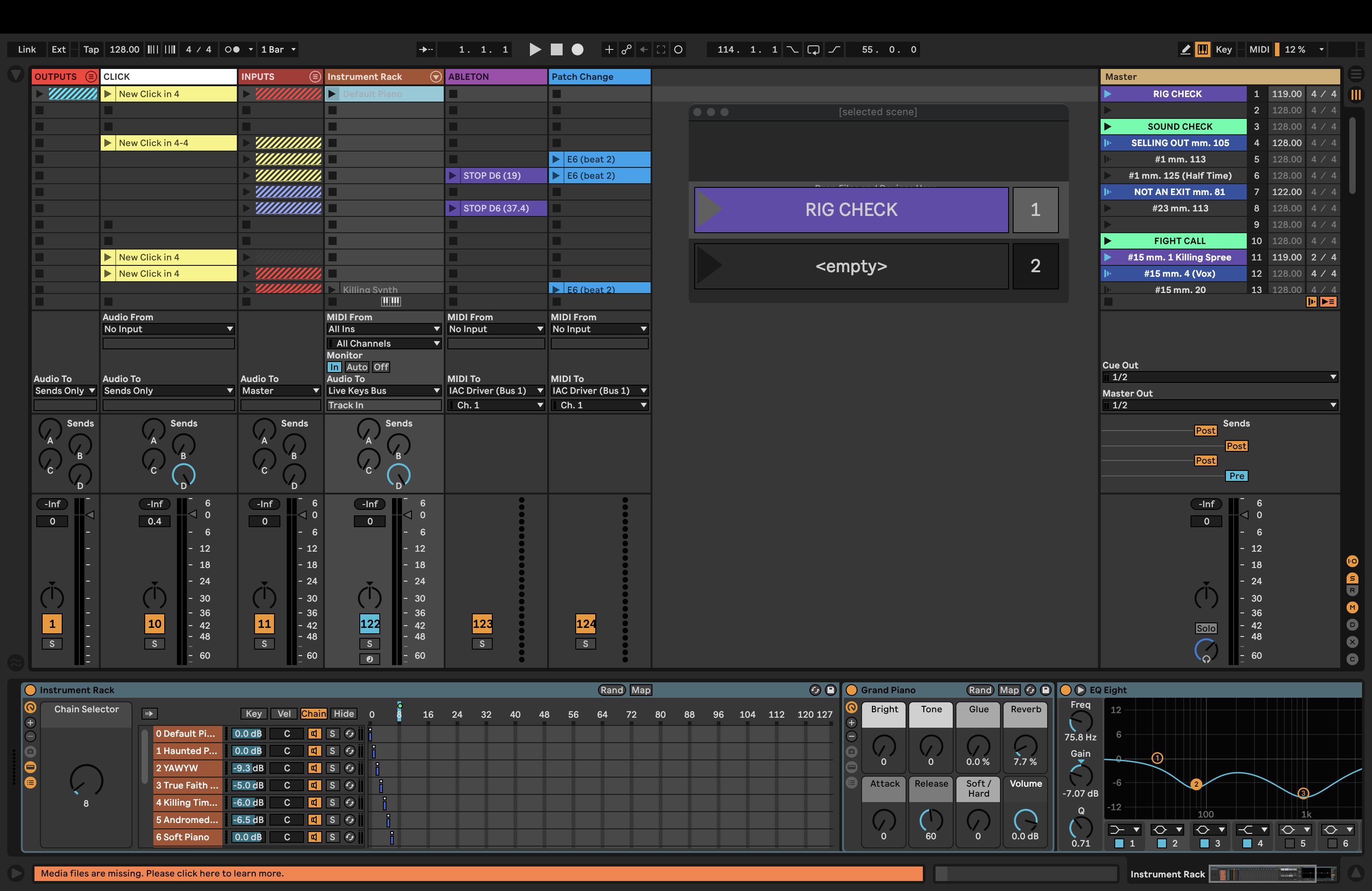
How is this show different from other projects you’ve worked on?
H: For me, the addition of Ableton as a live accompaniment design is new, but this show is also incredibly chorally dense. The cast is singing music that is as hard as the pieces I was singing in college, and designing that sound in a space as intimate as the basement of the Chopin was an incredible challenge and experience.
T: Same for me. I’ve directed shows that are tracked, and I’ve even used Ableton to run tracks before, but this is the first time that I’m integrating live playing with Ableton. It presented itself with some unique challenges but It was very fun to figure out how to make it work in our context. While Ableton was built from the ground up with live performance in mind, I don’t think it was designed for the specific needs of musical theatre. Because of that, sometimes you have to trick it into doing what you want.
Getting into the specifics of American Psycho, any favorite moments or work you’re most proud of? Talk us a bit through the process of creation!
H: Okay, without spoiling anything, there is a crucial moment in act 2 where the ensemble performs an EXTREMELY difficult a cappella choral number, and they do it with their eyes closed and completely physically detached from each other. I do absolutely no conducting – the cast trusts each other and breathes with each other and creates true theater magic. Moments like that only happen when you have a cast that came on Day 1 to achieve greatness with each other. It’s stunning, it’s breathtaking, and it’s moments like that which remind me why we do what we do. And I would be remiss to spend this entire time talking without acknowledging the unbelievable vocal work of Kyle Patrick as our Patrick Bateman. Kyle gets to leave stage a total of twice in a 2.5 hour show while belting his face off on a rock score. This role is so vocally demanding, and he handles it like an absolute champion.
T: My absolute favorite spot in the show is the chunk of the show from True Faith into Killing Time into In the Air Tonight. I think the transitions between those numbers are stellar and our cast is just absolutely killing (ha!) it.
Anything else?
H: I want to make sure credit and acknowledgement goes to the rock star associate conductors of this show who have learned a very delicate and intricate show, making sure that the show goes on while we continue to try to make theatre while the air is lava and COVID is still very much around. Special thanks and shout outs to Bryce Halliday, Michael Oldham, and Bailey Banks!!!
You can hear Heidi & Tobi’s work through November 26.
